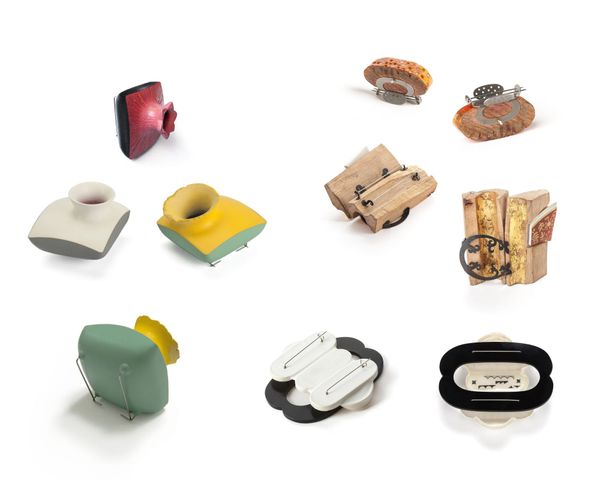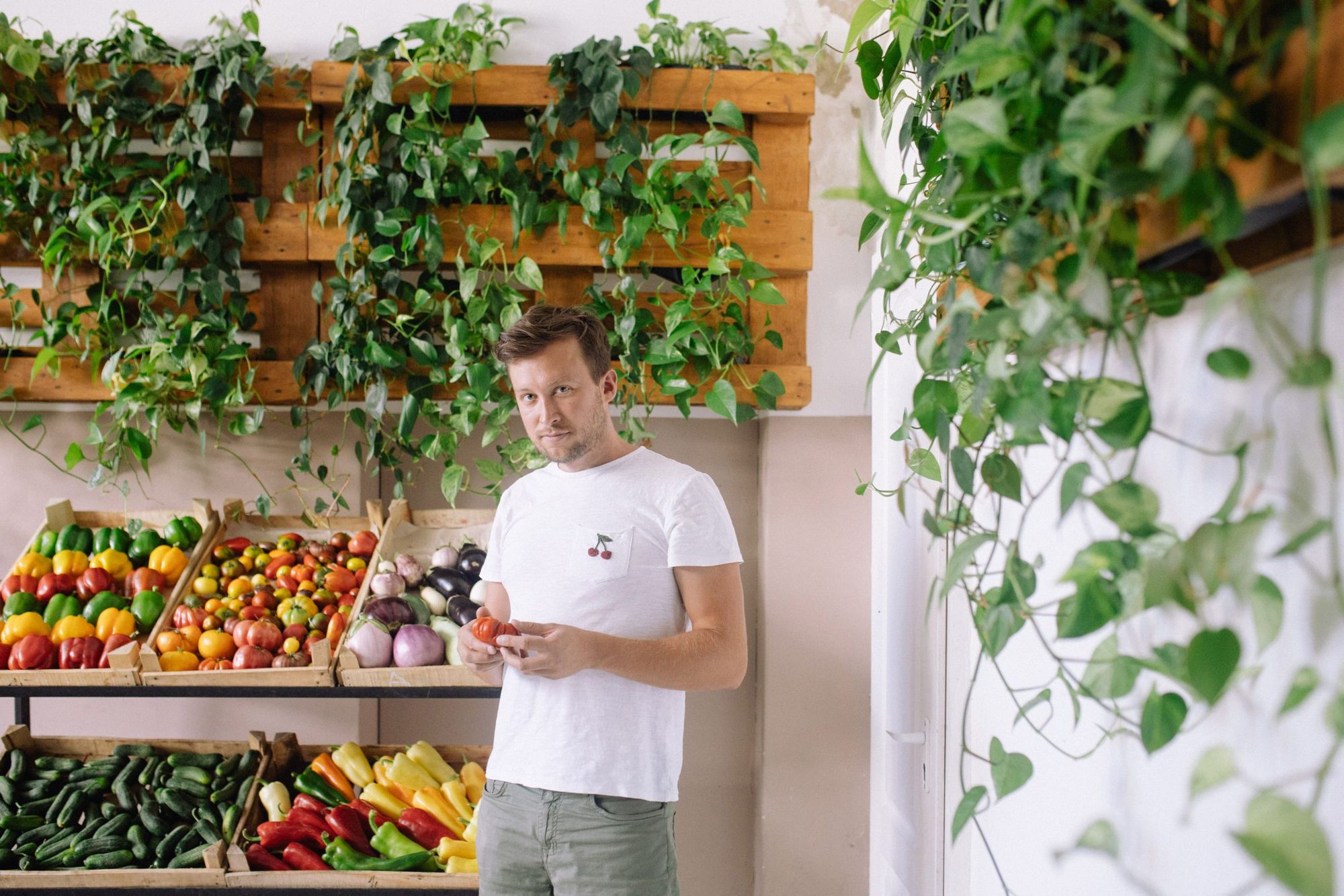Biting into a tomato that has grown on free land, and that has been surrounded with great care since it was a seedling, is a very different experience than tasting something that came from the other side of the world in trucks. Hard work, time and energy spent on farming pay off, but as buyers, we tend to forget what treasure we have. It is good to have someone to draw your attention to this—in the fifth episode of our Behind the scenes series we visited Boldizsár Horváth, the owner of Farm2Fork.
If someone says “from the soil to the fork”, we may not think much of it. If you say “Farm2Fork”, it is different again—if not elsewhere, you can meet this expression in producer markets, in package free shops or in articles dealing with sustainability and domestic producers. Although the success of the brand is due to the fusion of a large and well-functioning team, the enterprise would not exist without the founder: Boldizsár Horváth is a tireless and enthusiastic representative of the mission that Hungarian organic farming represents.
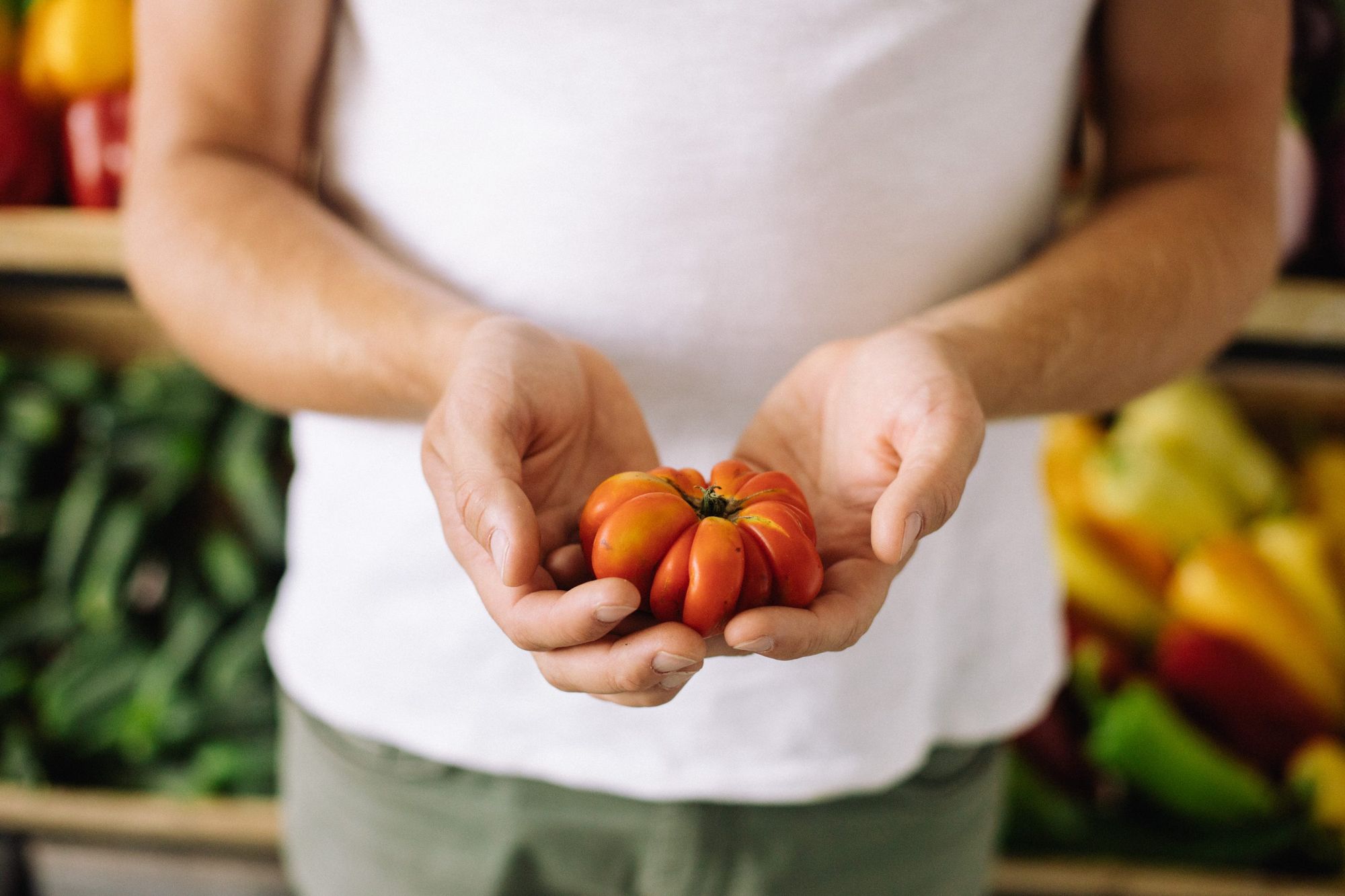
“I was looking for a topic with potential, even in Europe. And then out of nowhere, I came into a medium where there was value in crops, and in whoever produced them. This opened my eyes to the fact that it is not the individual that matters if there is a common goal.”
Boldizsár was mainly interested in nature photography, he traveled a lot in forests and fields, but he chose agriculture for purely practical reasons. Throughout the environmental management areas, he wanted to focus on something that also has business potential, such as renewable energy sources. However, in 2012 he took a study trip to England, where he got to know the world of local organic farming: here the producers operated in a kind of cooperative system, mutually helping each other. It had a huge impact on him. Although he had previously thought about farming and having his own farm, he understood that it was only possible to move forward and create value together.
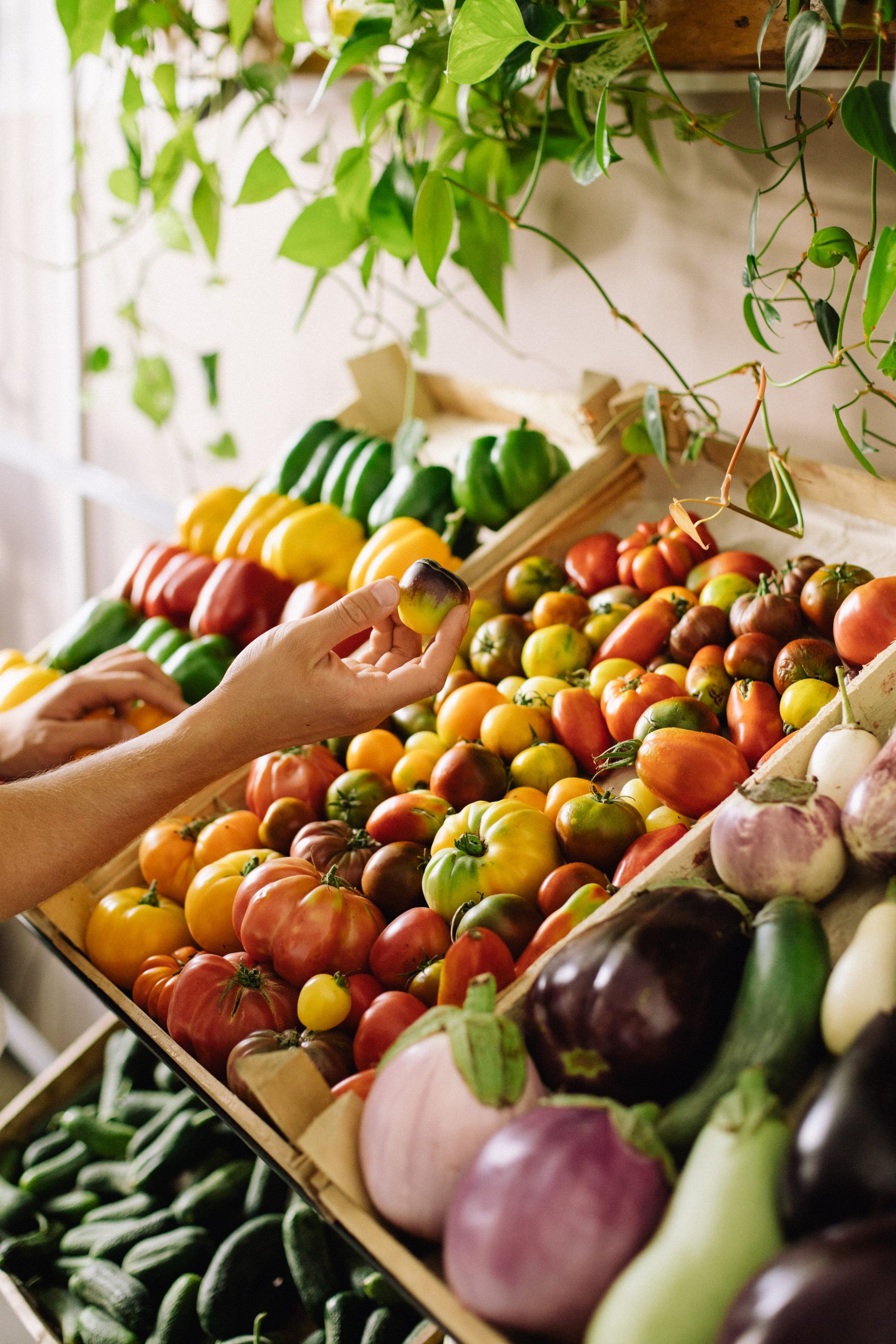
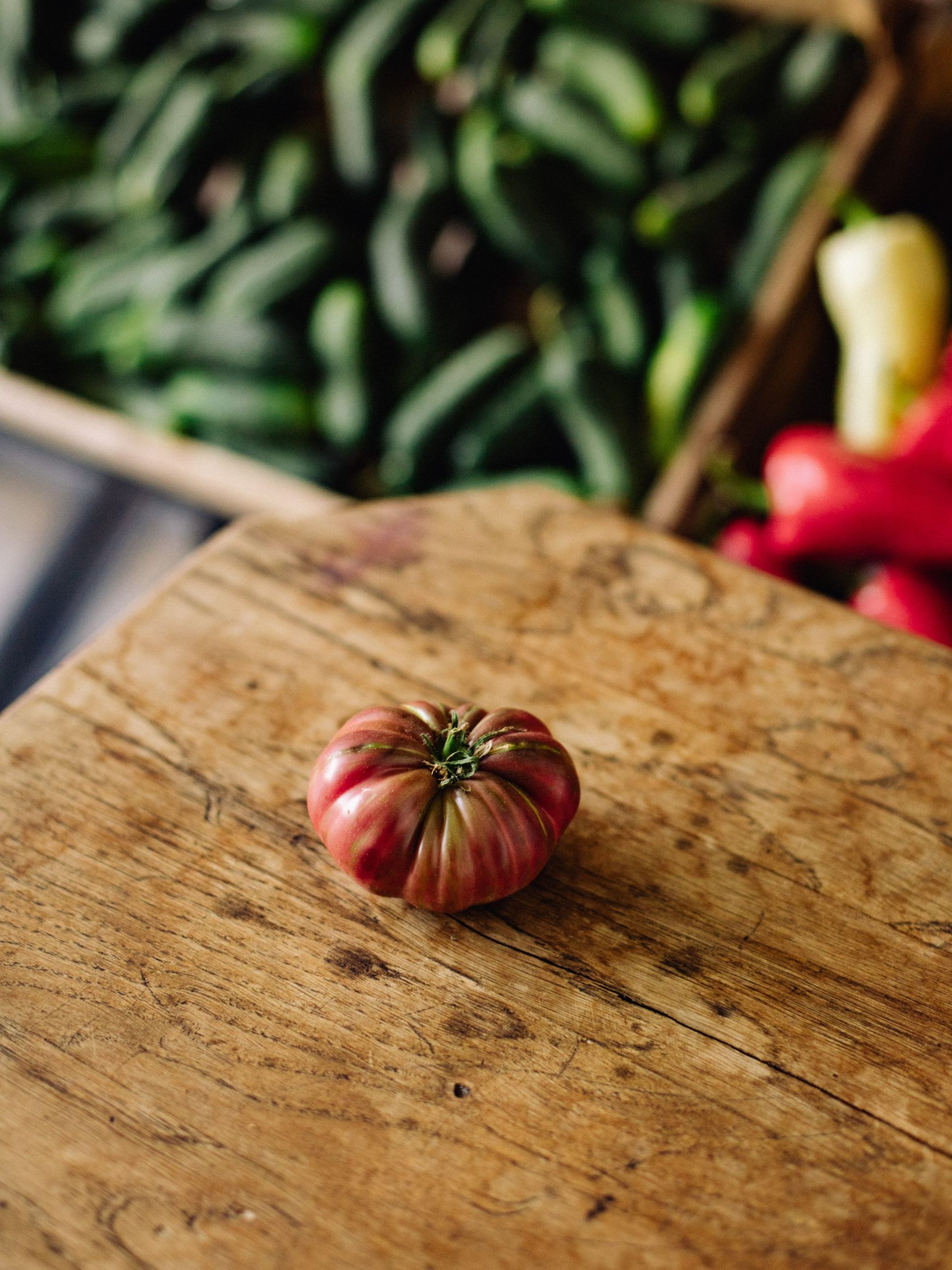
Returning home, he wondered how he could help Hungarian farmers. The collectivization after the World Wars, the bad memory of the producer cooperatives left a painful mark in Hungary, and therefore, understandably, many people hesitated from such a partnership. However, his aim was community building and not taking others’ goods, with a fair attitude, so he slowly persuaded more and more people to start the dialogue. After a short stopover in Germany, he started to work at Csoroszlya Farm while collecting contacts continuously. (In the meantime, of course, he also studied and obtained his master’s degree in the topic of farm-to-table.) He started thinking that the system should be changed first, and then enough influence can be exerted on an individual level, so he literally started peddling, unknown, at a young age, to the managers and chefs of top restaurants.
“I thought that if I showed the value behind the domestic vegetables and fruits, along with the good quality, it would have a pretty convincing power. But I had to be fully prepared for this.”
It was surprising to him that he received a lot of positive feedback in the initial period, in 2019, for example, from István Pesti or Szabina Szulló, who are the unquestionable excellence of the profession. He knew he had only one chance with everyone, so he “prepared”, and got to know everything about everyone and understood it as an exam situation. His thoroughness and expertise made it credible, so the collaborations started slowly, first with different types of potatoes. Then, as in a fairy tale the villain, along came Covid, restaurants closed, and he needed a plan B. Although the business-to-consumer system was new to him, he got started—he created the website, started communicating to the general public, and entered into partnership contracts with various places, such as the Ne pazarolj (‘Don’t waste’—the Transl.) package free shop. He knew that in order to survive, he had to stand on more legs, but the plan worked: more and more people took advantage of the opportunity to order.
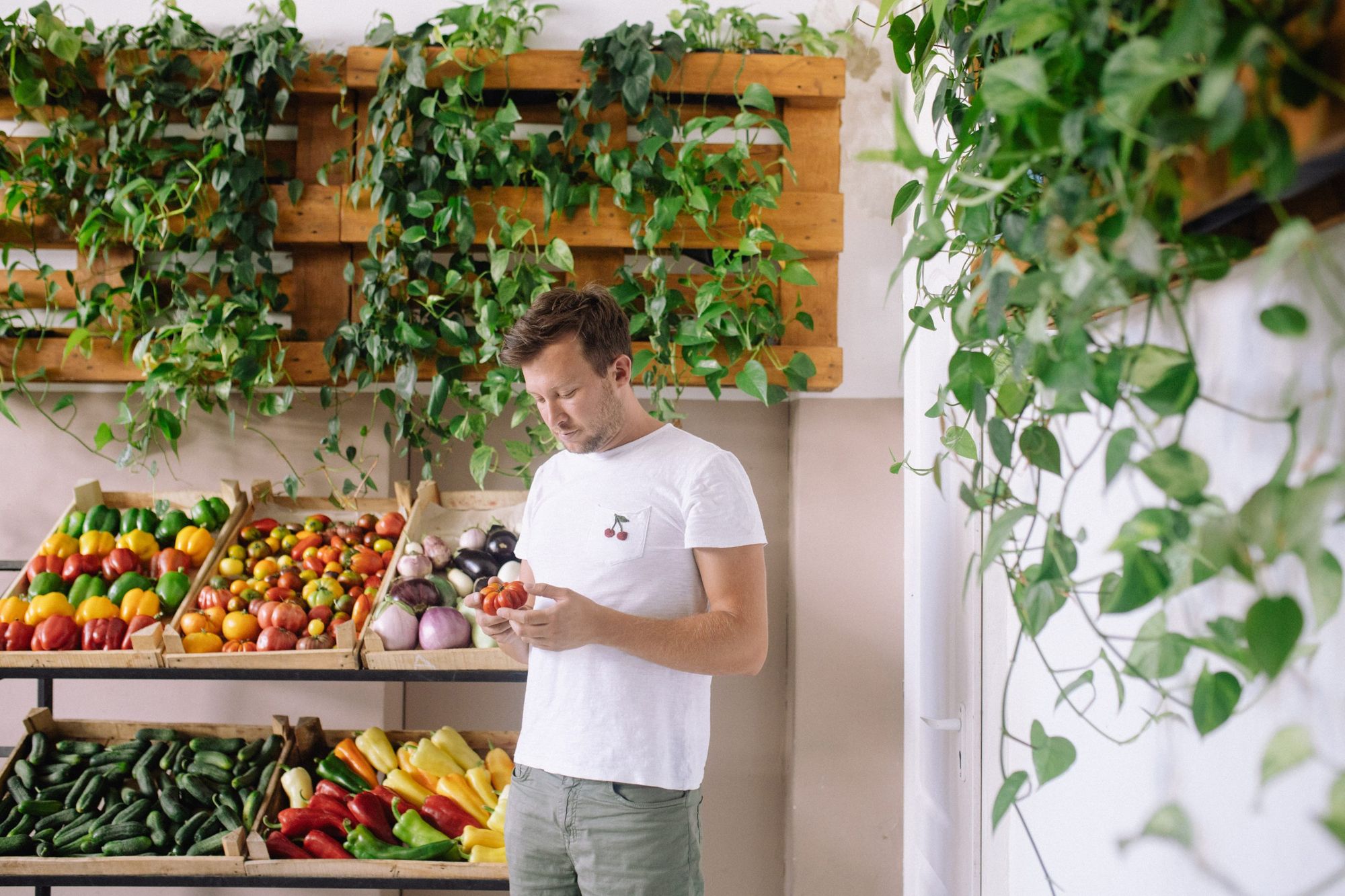
“Everything was transparent. On the one hand, our message to the customers was an education, they could support the domestic producers, and they received good quality, healthy things, even at their doorstep. It meant a lot to everyone at the time.”
Each product meets different conditions: he sells only seasonal and local vegetables and fruits, collected from domestic producers, with a special focus on organic crops. Packaging and delivery are also carried out in an environmentally conscious manner, and cooperation is fair-trade, since its purpose is not exploitation. He considers it important that everything arrives at the Budapest “distribution center” from as close as possible, so he does not necessarily work with farmers from the other side of the country. The offer is still wide, as many of the 90 varieties of Hungarian tomatoes or even 200 varieties of grapes are added to the online cart, showing the richness of the Hungarian lands.
“Times will be tough, but I will stick to what I value: awareness, seasonality, sustainability. As always, I will continue to fight for local producers.”
Over the years, he has built up serious logistics—Boldizsár is currently working with 50 producers, two deliveries a week. Some people bring the goods, other times he or his colleagues go to pick them up, during the photo shoot there were constant phone calls and comings and goings in the HQ. Nor does it alarm him if someone asks for something special, for example, once a Hungarian fine dining restaurant asked for pine bud or baby corn. Of course, the current uncertainty affects him, but he thinks that if you put your heart and soul into something, its success will be tangible. Although producers and crops are running out, fuel prices, overhead costs, and climate change are a heavy burden on everyone until the soil produces, he will be here fighting to give us a miracle in the storm of everyday life.
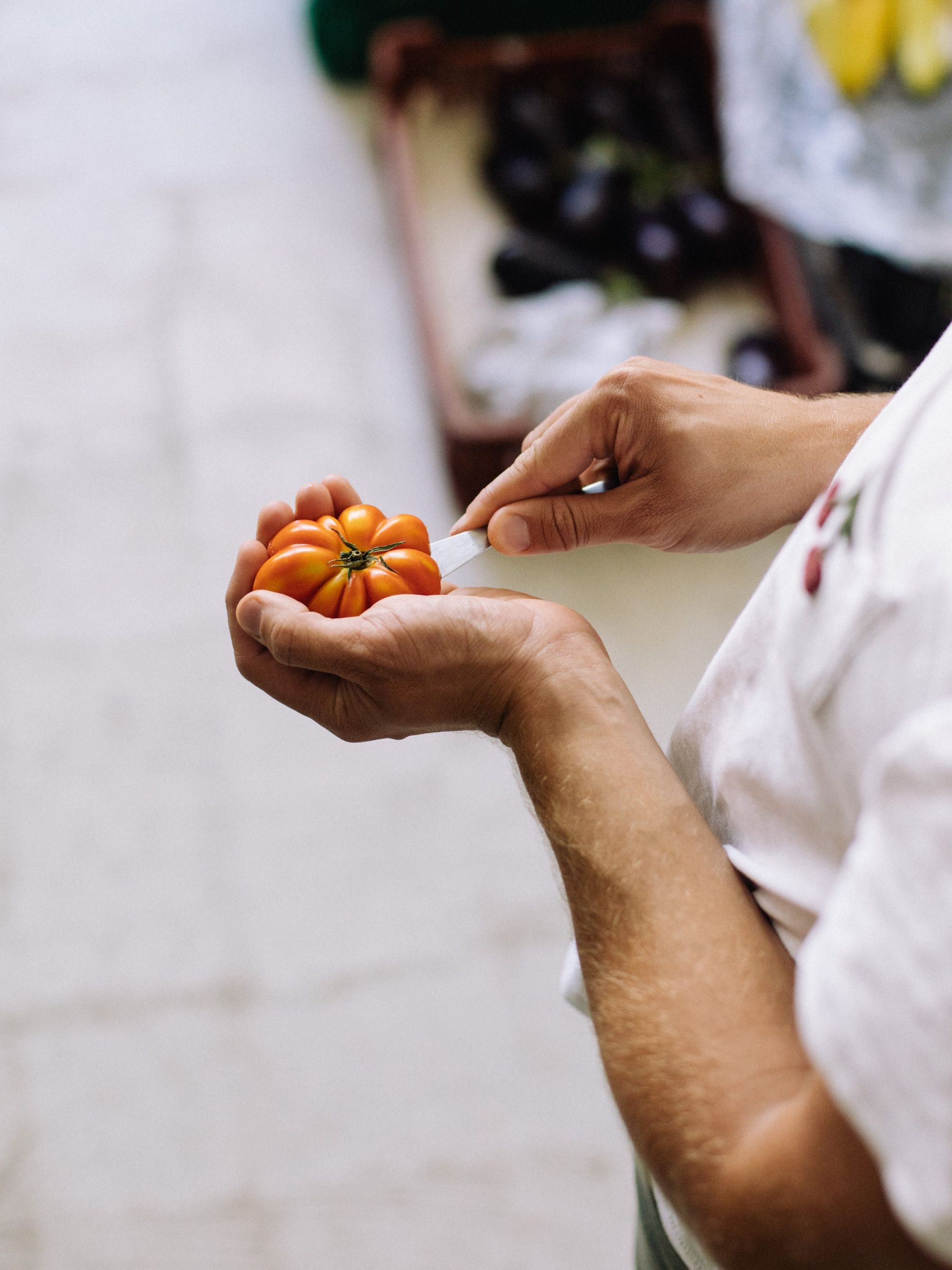
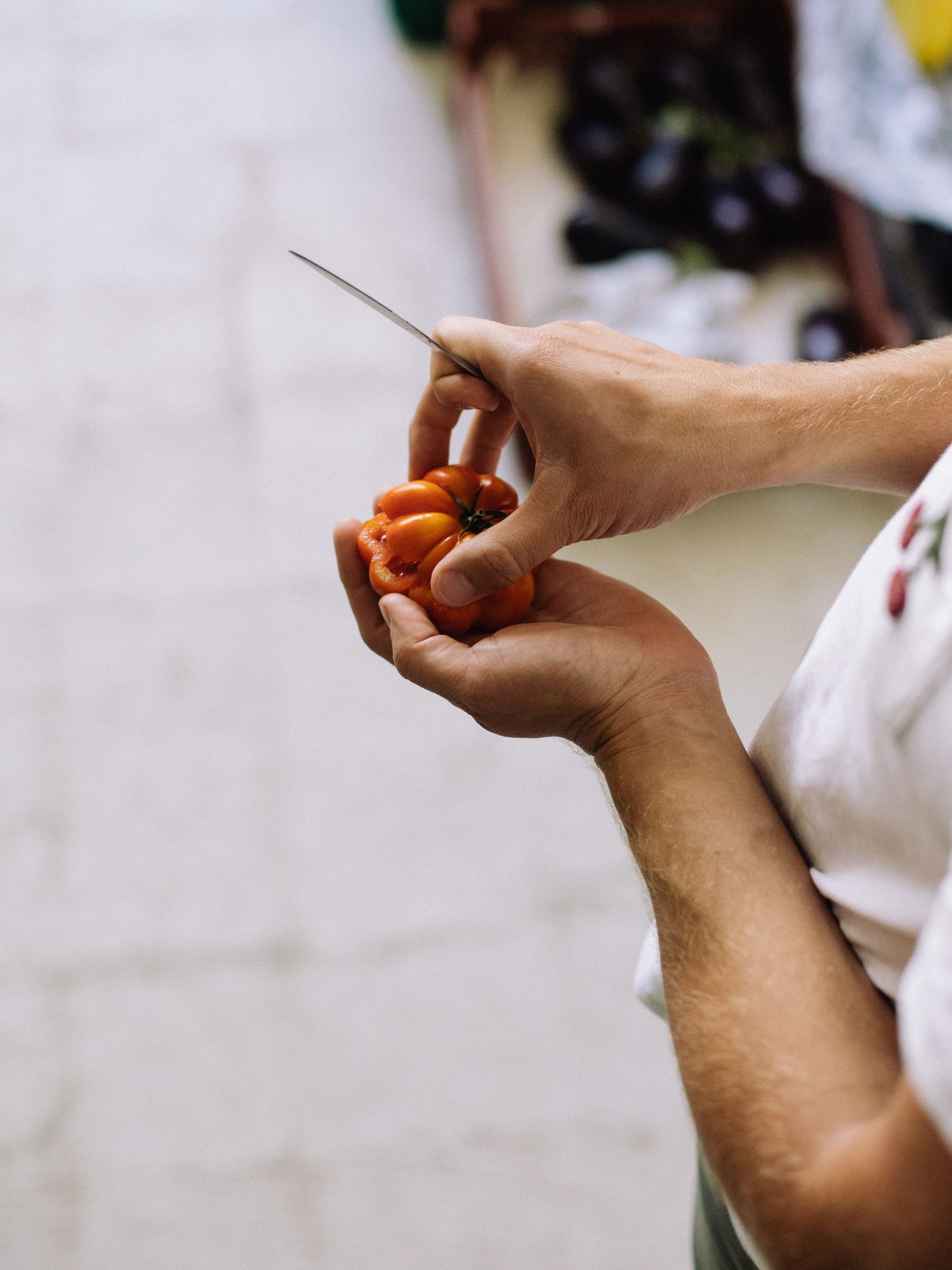
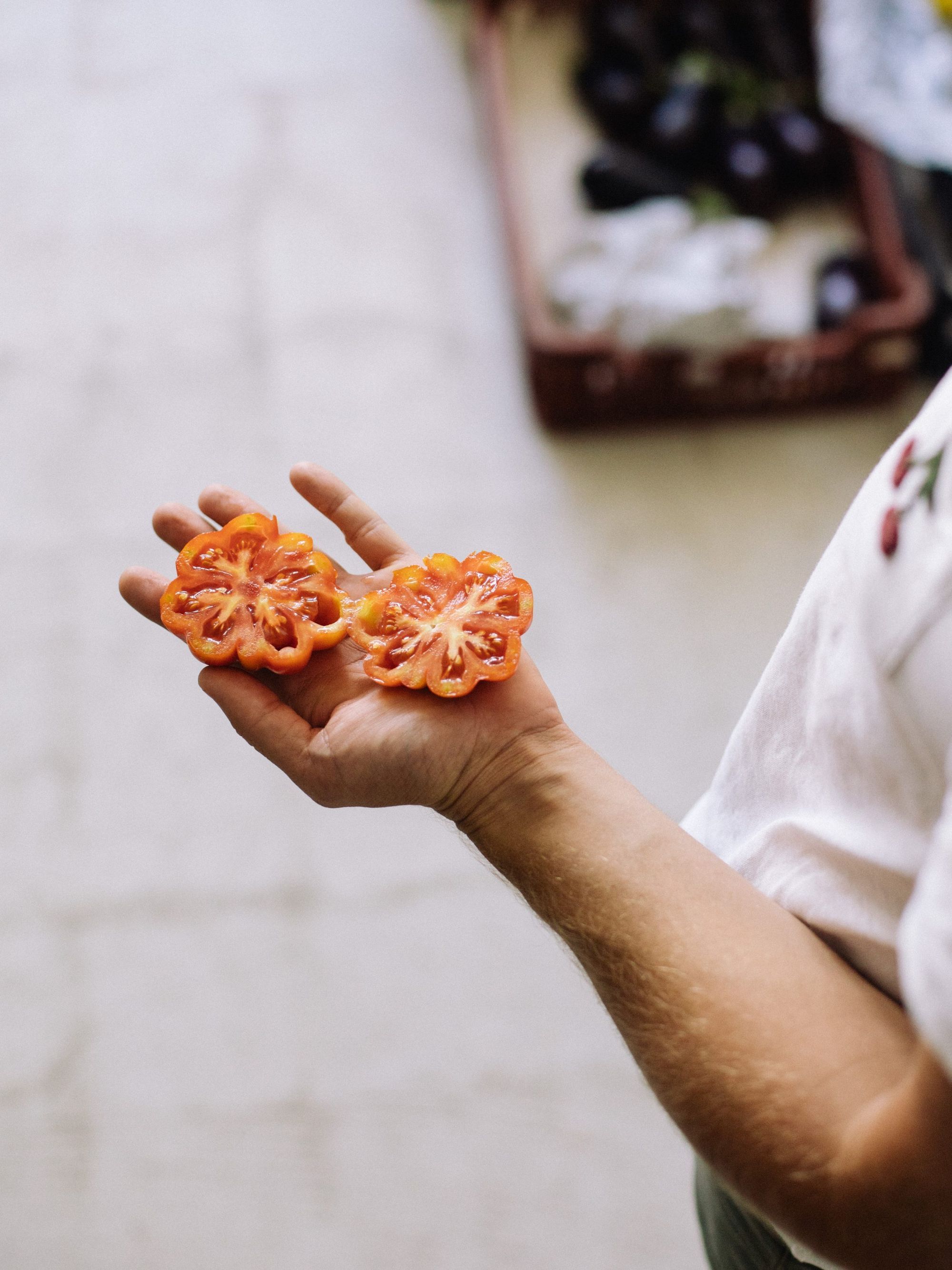
Farm2Fork | Web | Facebook | Instagram
Photos: Dani Gaál

Niklas Paschburg: The alchemist of sounds
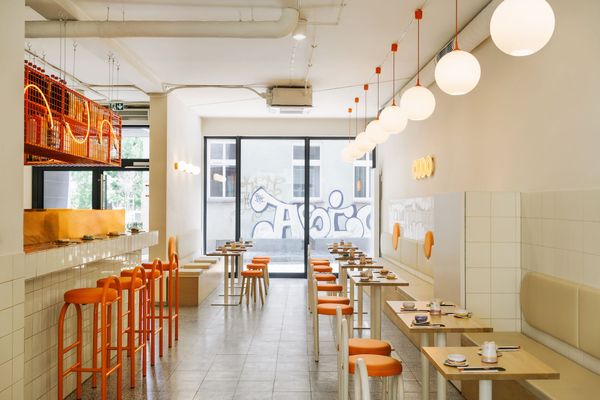
A mixture of Japanese minimalism and street food: introducing CUDO
